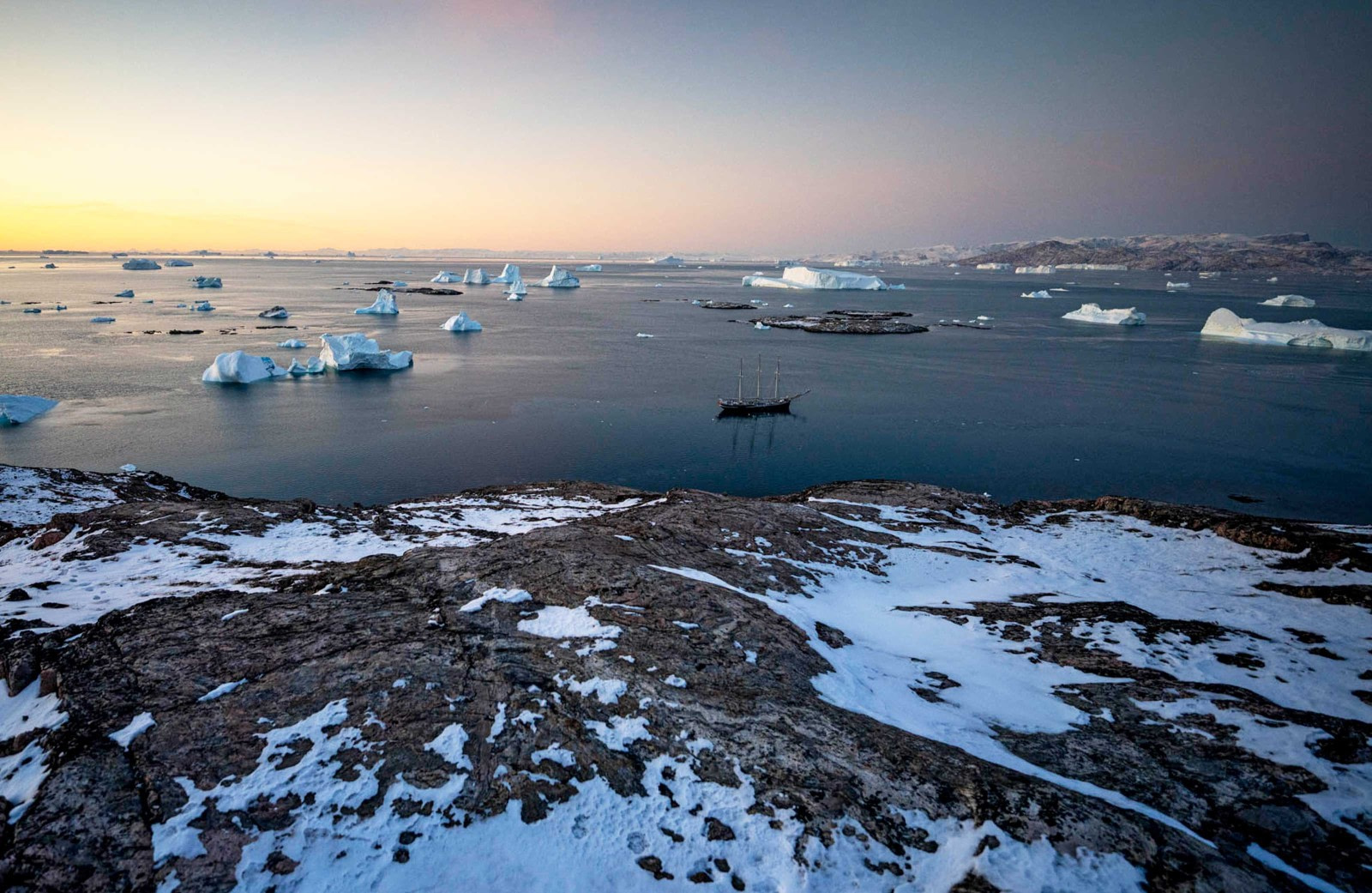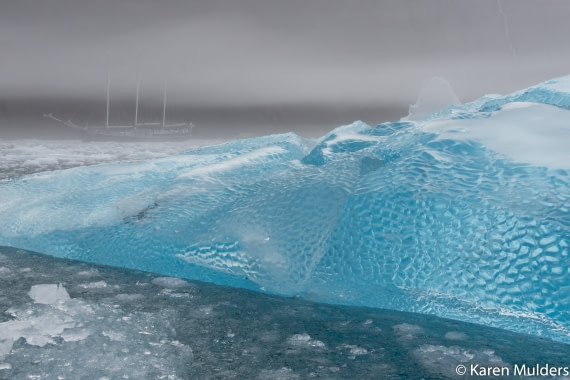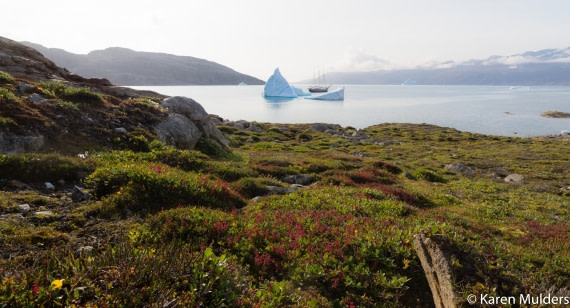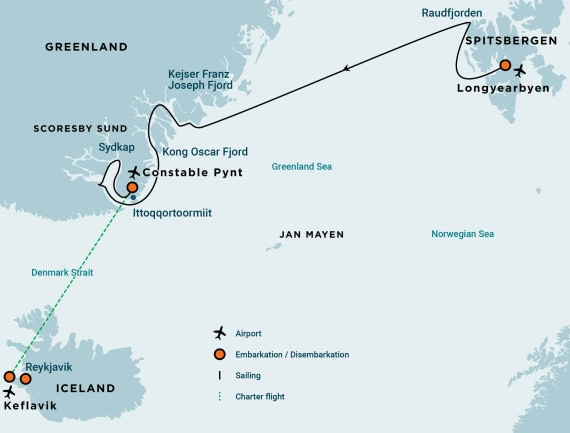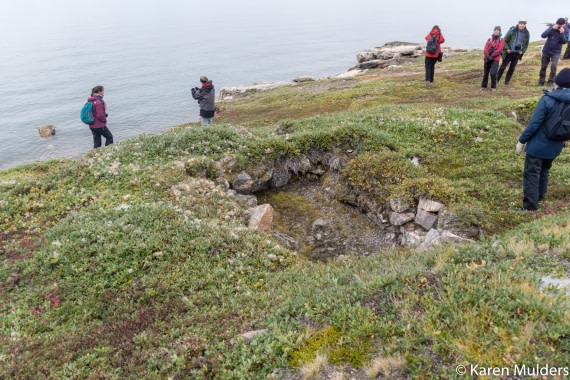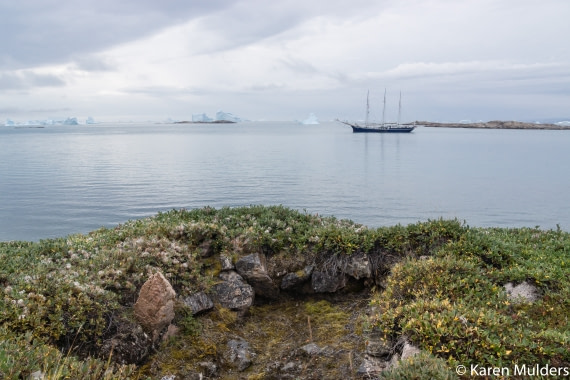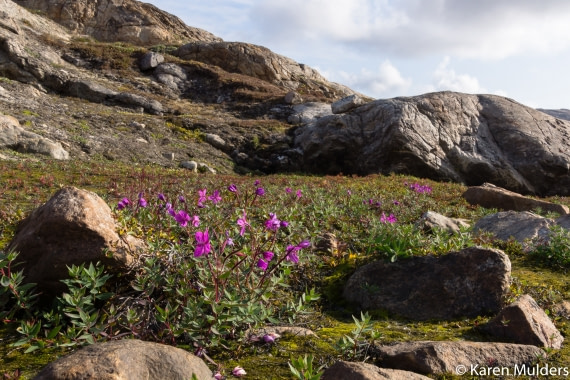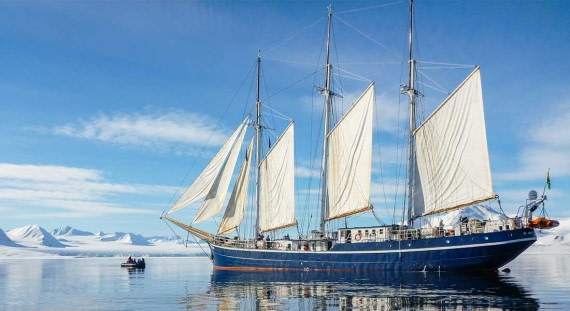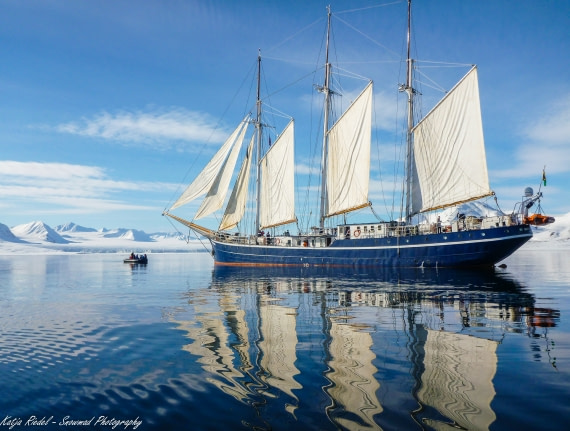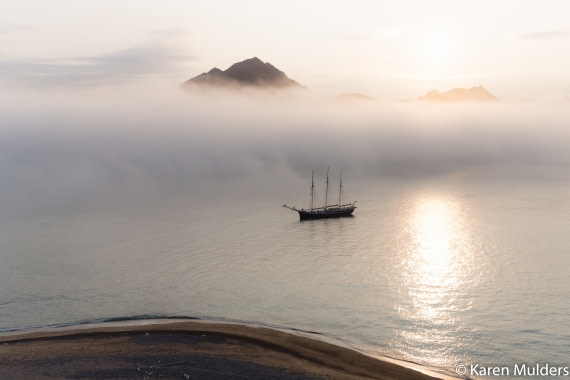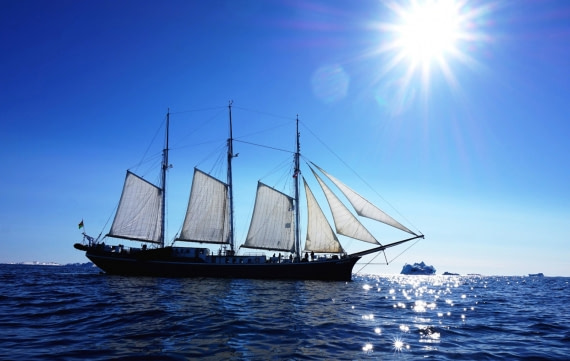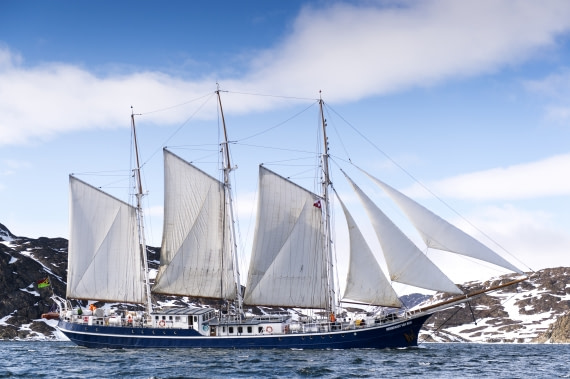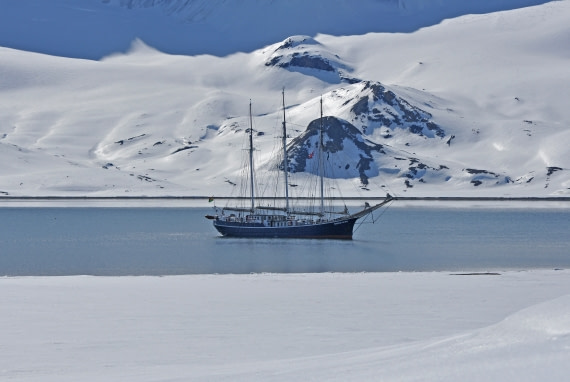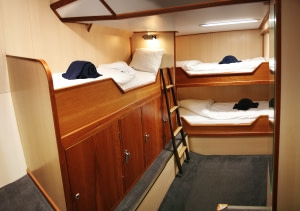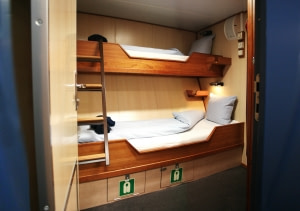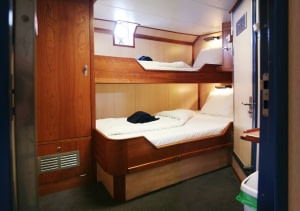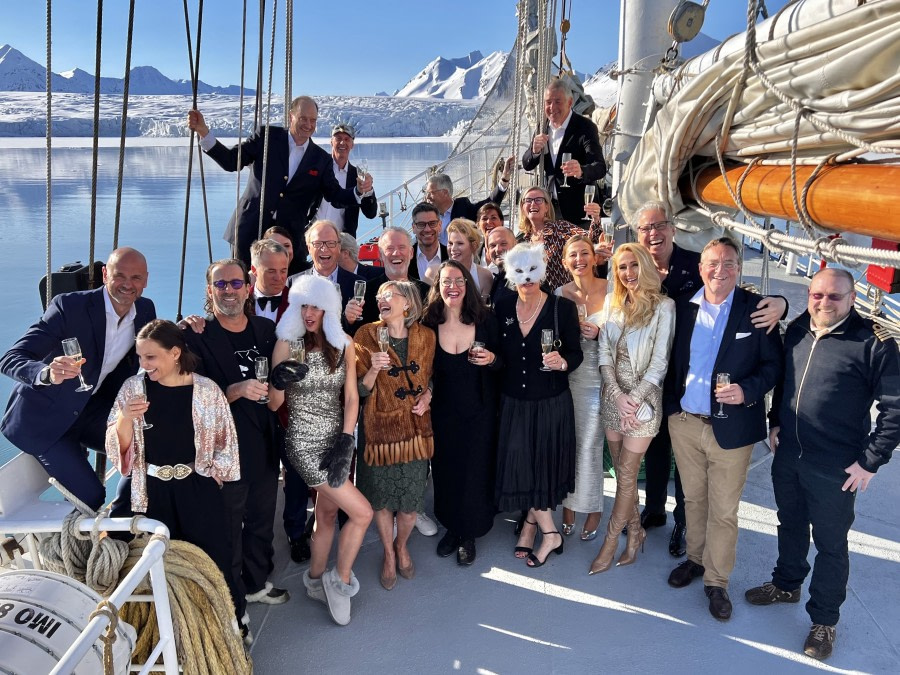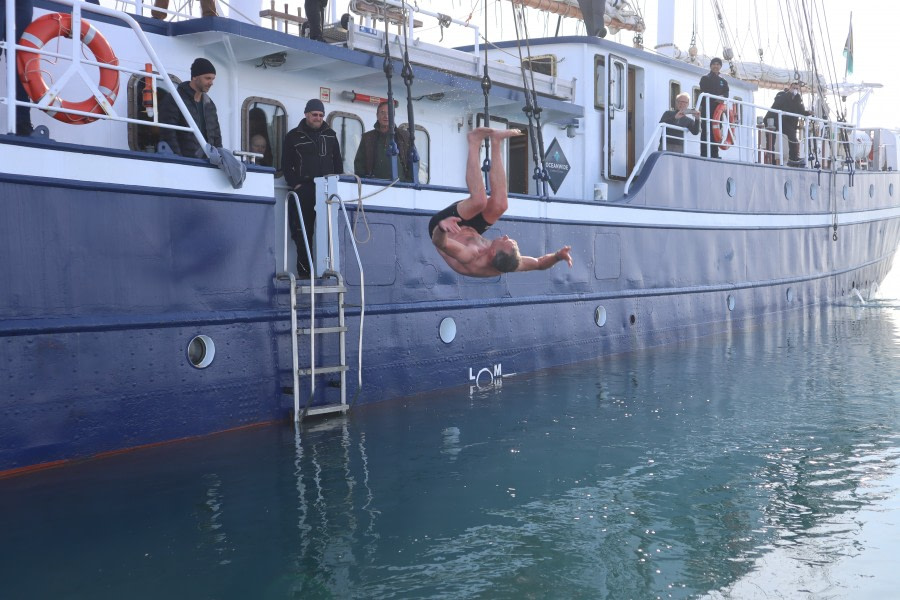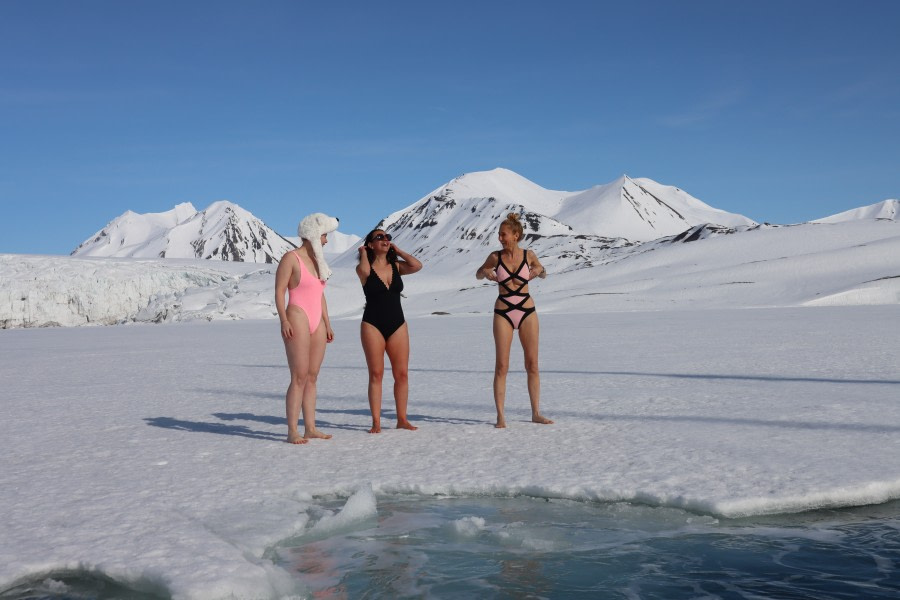Titel
Spitzbergen – Nordostgrönland, Fliegen & Segeln
Anfang - Ende
Reisecode
RVR15-26
Sprache
Englisch
Schiff
Einschiffung / Ausschiffung
Lange Jahrbyen - Constable Pynt
Tage/Nächte
19 Nächte
Überblick über die Reise
Die Kreuzfahrt nach Spitzbergen und Nordostgrönland führt durch Gewässer mit atemberaubender Landschaft. Die Expedition durchquert Gebiete, in denen Robben, Seevögel, Wale und Eisbären beheimatet sind.
Tag 1: Größte Stadt, größte Insel
Sie landen in Longyearbyen, dem Verwaltungszentrum von Spitzbergen, der größten Insel des Svalbard-Archipels. Genießen Sie einen Spaziergang durch diese ehemalige Bergbaustadt, deren Pfarrkirche und Svalbard-Museum faszinierende Sehenswürdigkeiten sind. Obwohl die Landschaft karg erscheint, wurden hier mehr als hundert Pflanzenarten registriert. Am frühen Abend verlässt das Schiff den Isfjord, wo Sie vielleicht den ersten Zwergwal Ihrer Reise sehen können. Am Abend fahren Sie nach Trygghamna, wo Sie die Überreste einer englischen Walfangstation aus dem 17. Jahrhundert und einer pomorischen Jagdstation aus dem 18. Jahrhundert sehen können, die Sie beide am nächsten Morgen besuchen können.
Tag 2: Füchse, Seevögel und grasende Rentiere
Von Trygghamna aus wandern Sie nach Alkhornet, einer großen Seevogelklippe, wo die Vögel nach Brutplätzen Ausschau halten. Unterhalb der Klippen kann man häufig Polarfüchse beobachten, und wenn nicht zu viel Schnee liegt, sieht man vielleicht auch Rentiere, die auf der üppigen Vegetation grasen.
Tag 3: Fuglefjorden nach Raudfjorden
Sie segeln in den Fuglefjorden ein, umgeben von Ausblicken auf Svitjodbreen und Birgerbukta, beides Brutplätze für Skuas und Orte, an denen man mit etwas Glück auch Eisbären beobachten kann. Der Raudfjorden an der Nordküste Spitzbergens ist ein wunderschöner Ort, um die Gletscher zu bewundern. Er ist auch ein beliebter Aufenthaltsort für Ringelrobben und Bartrobben, Seevogelkolonien und gelegentlich auch Eisbären und Belugas.
Tag 4 – 7: Weiter nach Ostgrönland
Je nach Wetterbedingungen können Sie möglicherweise die zerklüftete Kante des ostgrönländischen Meereises vor sich auftauchen sehen. Halten Sie Ausschau nach Walen und wandernden Seevögeln.
Tag 8: Überreste der Fallensteller
Das Ziel ist es, in die Foster Bay zu segeln und am späten Nachmittag oder Abend in Myggbukta an Land zu gehen. Hinter der alten Jägerhütte (wo in der ersten Hälfte des 20. Jahrhunderts norwegische Fallensteller auf Eisbären und Polarfüchse jagten) erstreckt sich eine weitläufige Tundra, die von Moschusochsen bevölkert wird und auf deren kleinen Seen Gänse schwimmen.
Tag 9: Helle Berge, große Berge
Sie segeln durch den Kaiser-Franz-Joseph-Fjord und genießen den Blick auf die hohen Berge und leuchtenden Eisberge im Inneren. Am Abend erreichen Sie das Teufelsschloss, einen markanten Berg, der Teil der Eleonora Bay Supergroup ist: Sedimentgestein, das vor 950 bis 610 Millionen Jahren in einer Tiefe von 16 km (10 Meilen) entstanden ist. Diese rostrote, mehrschichtige, einzigartige Geologie prägt die Landschaft der kommenden Tage.
Tag 10: Die essentielle Arktis
Bei der Ankunft in Blomsterbugten haben Sie gute Chancen, Polarhasen und Moschusochsen zu beobachten. Der Noah Lake ist die Heimat von Eistauchern und ihren Jungen, und es gibt hier zahlreiche Wandermöglichkeiten. Am Nachmittag dringen Sie tiefer in den Kaiser-Franz-Joseph-Fjord vor und suchen in Renbugten Schutz. Kolossale Eisberge und die typische arktische Landschaft begleiten Sie auf Ihrer Fahrt durch dieses enge Fjordsystem.
Tag 11: In den Antarctic-Sund
Heute ist das Ziel, in Renbugten zu landen, um Moschusochsen und Polarhasen zu beobachten. Gegen Mittag fahren Sie nach Osten in den gleichnamigen Antarctic-Sund und genießen die Aussicht auf das alte Sedimentgestein. Sie sollten vor Einbruch der Dunkelheit auf Maria Island ankommen.
Tag 12: Begegnung mit Menander
Sie fahren in den Kong Oscars Fjord hinein, um in der Nähe von Menander Øer zu landen, einem Ort, der zu ausgiebigen Wanderungen einlädt.
Tag 13: Farben des arktischen Herbstes
Weiter in Richtung Osten gelangen Sie nach Antarctic Havn. Sie verbringen den Nachmittag in diesem weitläufigen Tal, wo Sie Gruppen von Moschusochsen beobachten können. Zu dieser Jahreszeit ist die spärliche Vegetation in goldenes Feuer getaucht. Ihr Reiseleiter kann Ihnen vielleicht etwas über die faszinierende Geopolitik erzählen, die sich hier in den frühen 1930er Jahren zwischen Norwegen und Dänemark abgespielt hat.
Tag 14: Segeln zum Scoresby Sund
Sie verbringen den Tag auf See und steuern das größte Fjordsystem der Welt an: Scoresby Sund.
Tag 15: Inuit-Viertel von einst
Heute erreichen Sie Scoresby Sund und segeln entlang der vergletscherten Volquart Boons Kyst. Sie können auch eine Zodiac-Fahrt an einer der Gletscherfronten vorbei genießen und die Basaltsäulen und Eisformationen von Vikingebugt besuchen. Am Nachmittag steht ein Besuch der Insel Danmark auf dem Programm, wo Sie die Überreste einer vor etwa 200 Jahren verlassenen Inuit-Siedlung finden. Die kreisförmigen Steinringe weisen auf die Sommerhäuser hin, während die Winterhäuser näher an einer kleinen Landzunge zu sehen sind. Die Stätten sind gut erhalten, mit leicht erkennbaren Eingängen, bärensicheren Fleischvorratskammern und Grabstätten. Am Nachmittag segeln Sie entlang der Ostseite von Milne Land inmitten einer Reihe von verstreuten Eisbergen.
Tag 16: Riesige Eisberge in der Nähe von Sydkap
Sie landen in der Nähe von Sydkap, wo häufig Polarhasen zu sehen sind, und während des Mittagessens können Sie einen Blick auf die Einfahrt zum Nordvestfjord im Scoresby Land werfen. Hier begegnen Sie kolossalen Eisbergen, von denen einige über 100 Meter hoch und mehr als einen Kilometer lang sind. Die meisten dieser Eisberge liegen auf Grund, da der Fjord nur etwa 400 Meter tief ist.
Tag 17: Die Tundra von Jameson Land
An der Westküste von Jameson Land erstreckt sich eine weite Tundra, in der Moschusochsen grasen. Wir werden versuchen, an einem dieser Orte, beispielsweise Tyskit Nunat, anzulegen, in Erinnerung an Alfred Wegeners Bemühungen, Vandreblokken zu überqueren. Möglicherweise besuchen wir auch Kap Hooker oder eine wunderschöne Lagune westlich von Kap Stewart.
Tag 18: Siedlung am Scoresby Sund
Der heutige Halt ist Ittoqqortoormiit, die größte Siedlung in Scoresby Sund mit etwa fünfhundert Einwohnern. In der Post können Sie Briefmarken für Ihre Postkarten kaufen oder einfach nur herumschlendern, um die Schlittenhunde und die trocknenden Felle von Robben und Moschusochsen zu sehen.
Tag 19: Die Wanderungen am Hurry Inlet
Am Morgen halten Sie an der Südküste von Jameson Land, an einer Lagune in der Nähe von Kap Stewart. Hier versammeln sich Watvögel und Gänse für ihre Herbstwanderung, und Moschusochsen und Kragenlemminge ernähren sich von der kargen Vegetation. Weiter im Inneren von Hurry Inlet können Sie einen Spaziergang in der Nähe der Fjordspitze sowie an einem der Flüsse unternehmen, die hier münden. Hier haben Sie die Möglichkeit, den Berg J.P. Koch Fjeld in der Nähe von Hareelv zu besteigen. In dieser bemerkenswerten Gegend fanden Wissenschaftler Fossilien, die Fische und Amphibien aus der unteren Kreidezeit miteinander in Verbindung bringen. Sie übernachten vor Anker bei Constable Pynt.
Tag 20: Letzter Halt in Constable Pynt
Wir nehmen das Charterflugzeug von Constable Pynt nach Keflavik und nehmen Erinnerungen für ein ganzes Leben mit nach Hause.
Highlights die Sie erleben können
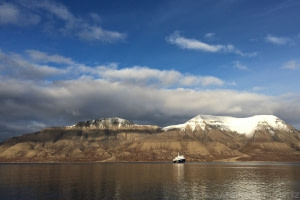
Besuchen Sie die Überreste einer längst vergangenen Walfangindustrie und erkunden Sie diese geschützte Bucht zu Fuß
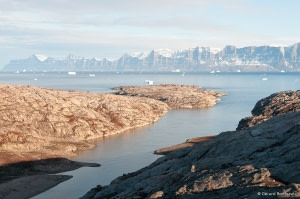
Die Schlüsselinsel des größten Fjordes der Erde
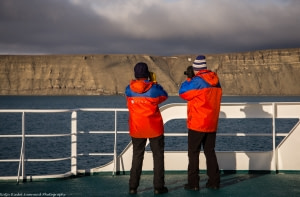
Jameson Land, eine Halbinsel im Osten Grönlands, ist bekannt für seine beeindruckenden geologischen Formationen
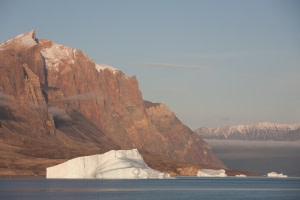
Dieses große ostgrönländische Fjordsystem liegt zwischen Kap Mackenzie und Kap Franklin
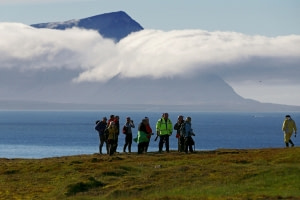
Dieser imposante Gipfel bewacht den Eingang zum Isfjord und ist Heimat für Tausende von Seevogelpaaren
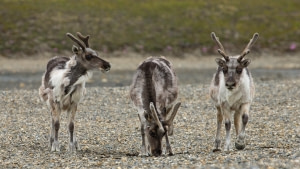
Diese kleinen Rentiere, die durch spezielle Erholungsprogramme vor dem Aussterben bewahrt wurden, haben eine dramatisch schwankende Geburtenrate
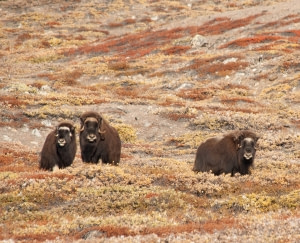
Diese ziegenähnlichen Tiere, die zu den wenigen Huftieren gehören, die die letzte Eiszeit überlebt haben, haben ein Unterfell, das eine der wärmsten Naturfasern der Welt ist
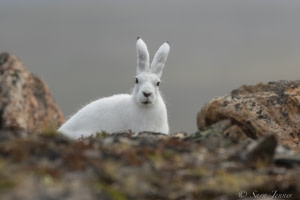
Sie können rennen wie der Wind, sehen alles um sich herum, ohne den Kopf zu drehen, und fressen manchmal Tiere statt Blätter - und sehen dabei noch so niedlich aus
Was unsere Reisenden sagen
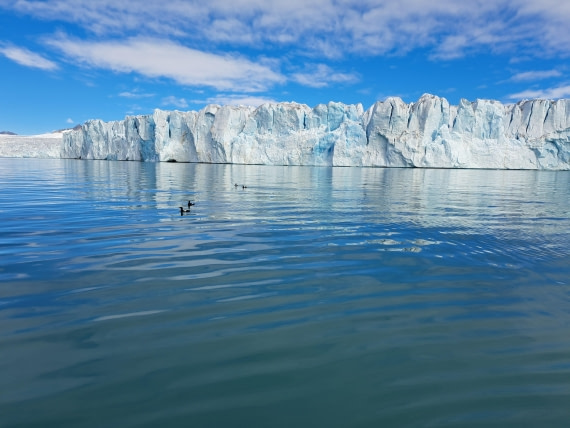
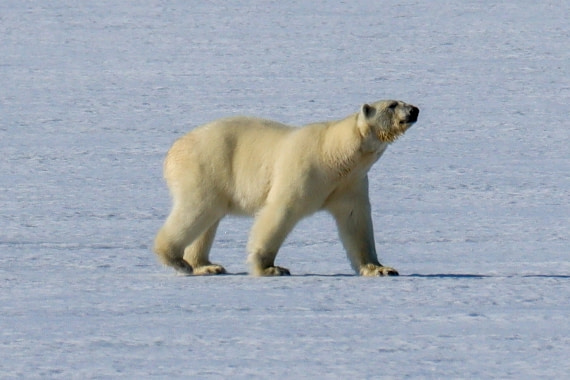



We've been waiting since 2020 to do this expedition and almost didn't make this one because of medical issues. I want to take special note of the Service Manager, Alfredo who went above and beyond in making us feel welcome aboard. Also kudos to the chef Khabir for his excellent variety of well prepared meals. Thanks also Captain Joachim for his safe guiding in these pristine waters. Thanks again for a special memory. Bill and Carla Francis
SV Rembrandt van Rijn
Unser Dreimastschoner „Rembrandt van Rijn“ eignet sich ideal für Expeditionsfahrten in den Fjorden Grönlands und Spitzbergen.
Alle Schiff-Informationen »Kabinen & Preise
Dreierkabine mit Bullauge
- 1 Bullauge
- 1 obere/untere Koje + 1 obere Koje
- Private Dusche und Toilette
- Viel Stauraum
Komplette kabine
28500 USD
Preis für die komplette Kabine, voll besetzt.
Liegeplatz teilen
9500 USD
Teilen Sie Ihre Kabine mit anderen zum besten preis
Private Doppelkabine innen
- 1 obere / untere Schlafkoje
- Private Dusche und Toilette
- Reichlich Stauraum
Komplette kabine
20500 USD
Preis für die komplette Kabine, voll besetzt.
Einzelkabine
17425 USD
Preis für die komplette Kabine bei Belegung mit 1 Person (1.7-facher geteilter Preis).
Liegeplatz teilen
10250 USD
Teilen Sie Ihre Kabine mit anderen zum besten preis
Private Doppelkabine mit Bullauge
- 1 Bullauge
- 1 obere / untere Schlafkoje
- Private Dusche und Toilette
- Reichlich Stauraum
Komplette kabine
23700 USD
Preis für die komplette Kabine, voll besetzt.
Einzelkabine
20145 USD
Preis für die komplette Kabine bei Belegung mit 1 Person (1.7-facher geteilter Preis).
Liegeplatz teilen
11850 USD
Teilen Sie Ihre Kabine mit anderen zum besten preis
